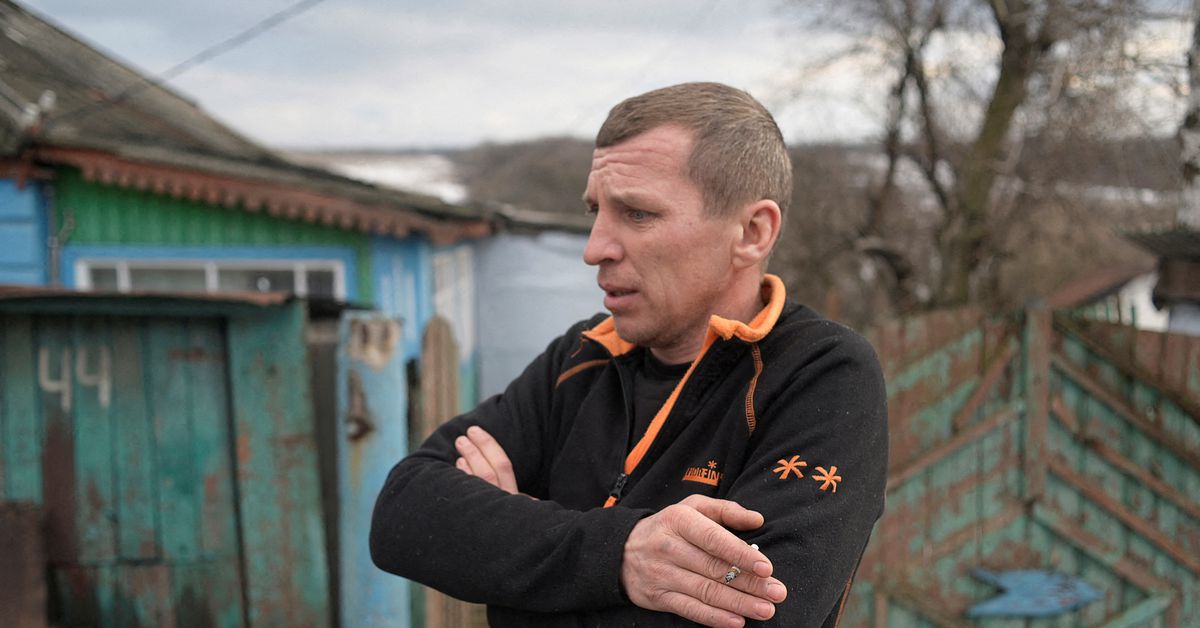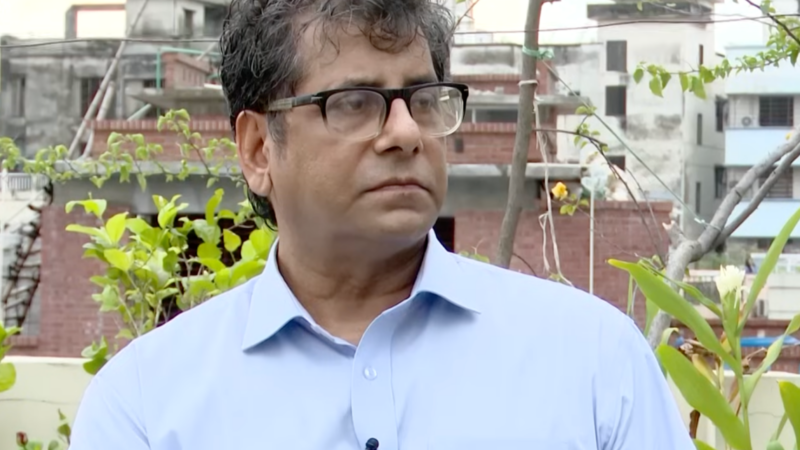Residents question Ukraine’s absence from talks about its future

Local resident Serhiy smokes near his house in the village of Katerynivka, located near the line of separation from Russian-backed rebels, in Luhansk Region, Ukraine January 7, 2022. REUTERS/Maksim Levin
KYIV, Jan 10 (Reuters) – As officials from the United States and Russia began talks on Monday over Ukraine’s security, Kyiv resident Oleh was among those who questioned why the country at the centre of the crisis was not at the negotiating table.
“I think it should not be this way,” the 59-year-old said.
“Ukraine must be present during those meetings because it is a more interested party than other countries, more interested party than Russia and the United States. Ukraine must be sitting in the first row.”
Register now for FREE unlimited access to Reuters.com Register
Washington hopes that negotiations will avert the threat of a Russian military offensive in Ukraine, while not conceding to Moscow’s security demands that include throwing out the prospect of Ukraine joining the NATO alliance.
Ukraine has sought and received assurances from allies that there would be “no decisions about Ukraine without Ukraine”, as Foreign Minister Dmytro Kuleba put it last week.
“Ukraine must be present at such talks because they directly concern its security, its life,” said another Kyiv resident, 57-year-old accountant Valentyna.
Despite its absence from negotiations in Geneva, Ukraine has pressed the European Union and United States to prepare tough measures as part of a diplomatic push to deter Russia.
President Volodymyr Zelenskiy spoke to U.S. President Joe Biden on Jan. 2 while Ukrainian and NATO officials meet in Brussels on Monday.
DEFIANCE AND ALARM
Ukrainians have struck a defiant tone, while sounding the alarm about a build-up of tens of thousands of Russian troops near Ukraine’s borders.
More than 150 people gathered at a protest in Kyiv on Sunday, holding up signs saying “SAY NO TO PUTIN”.
A December survey by the KIIS think-tank said 49% of Ukrainians thought the threat of invasion was real, while 59% said they would vote “yes” compared to 28% “no” in a referendum on joining NATO.
Furthermore, 33% said they were ready to put up armed resistance against Russia while a further 21% said they were ready for civil resistance actions.
Ukraine has been fighting a war against Russian-backed forces in eastern Ukraine since 2014, a conflict which Zelenskiy said has killed as many as 15,000 people, despite a peace deal agreed in Minsk in 2015.
The bombed-out village of Katerynivka in the Luhansk region bears scars of the war: empty streets and houses abandoned and destroyed by shelling.
Local resident Serhiy and his son live just a few hundred meters from the frontline. He said he could hear gunfire almost every day.
“Everyone wants peace, everyone wants tranquility,” he said.
Talks begin on Monday in Geneva before moving to Brussels and Vienna, with relations between the United States and Russia at their most tense since the end of the Cold War.
Unlike in Kyiv, some residents in the separatist-held city of Donetsk saw no reason to include Ukraine.
“What’s the point in talking to Ukraine? It seems to me they do not take any decisions,” said 59-year-old Andrei.
“They have already forgotten about the Minsk agreements and do not fulfil them. It seems to me there is no point talking to them about anything because they are not a player in these talks anymore.”
Register now for FREE unlimited access to Reuters.com Register
Reporting by Serhiy Takhmazov, Pavel Polityuk, Margaryta Chornokondratenko, Pavel Klimov, Valentyn Ogirenko and Maks Levin; writing by Matthias Williams; Editing by Mike Collett-White
Our Standards: The Thomson Reuters Trust Principles.






